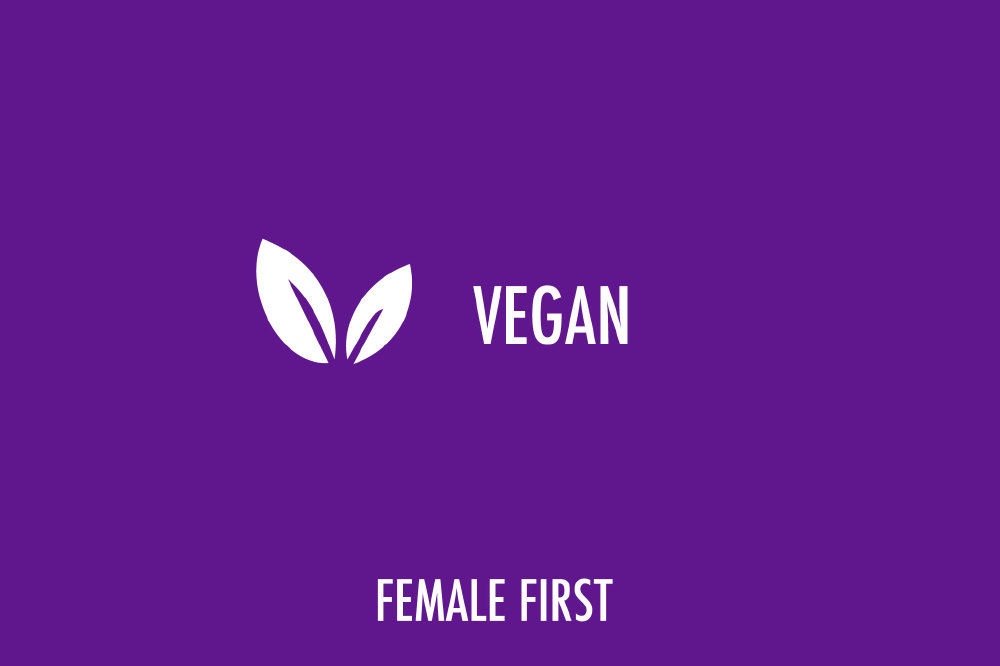Following a balanced and healthy diet can be a challenge, particularly for vegans who often find that they are limited for choice when searching through the shop shelves.

Vegan on Female First
Here, Luciano Venezia, Co-Founder of EDO – an app which evaluates food labels to provide people with nutritional values, so that they can make healthier choices when shopping – shares some tips and advice for vegans who are looking to maintain a healthy and nutritious diet.
Thrive on a plant based diet
“Many vegans do not dedicate enough time to planning their meals, so end up filling their shopping baskets with easy-to-grab, starchy items – such as pasta, chips and bread. This will do nothing for their health, or their waistline!
Vegans should strive to eat healthier, whole foods to give your body the vital nutrients and antioxidants it needs. Eating lots of plants (the more colourful the better) and including plenty of vegetables, fruits, berries, whole grains and nuts, will keep meal times exciting and make sure that vegans are giving their body the nutrients it needs.”
Consume some calcium
“Everyone knows that calcium is key to healthy bones, and is a vital player for your growth and development – so it’s essential that we all receive enough. This can be tricky for vegans, as calcium is most commonly consumed through dairy produce such as milk and yoghurt.
But believe it or not, there is a way for vegans to consume calcium, cruelty-free. The mineral is abundant in a wide assortment of green, leafy vegetables, such as cabbage, rocket watercress, kale, broccoli, seaweed, parsley. Calcium can also be found in almonds, chickpeas and kidney beans, as well as fortified foods such as plant pink, calcium-set tofu and fortified orange juice.”
Increase your Iron Absorption
“Iron deficiency is common among vegans, because they are not swapping red meat with other foods which provide the mineral.
The best way to prevent the deficiency is by eating plenty of whole grains and legumes, as these are packed with Iron. It’s also sensible to consume foods with sources of Vitamin C, such as strawberries, citrus fruits, cabbage and leafy greens, as this dramatically improves the rate at which your body absorbs iron.”
Use technology to support your food choices
“There are so many ingredients and additives that are not suitable for vegans – and unfortunately not all vegans are aware of them. For example, the additive E1105 is Lysozyme which is almost always extracted from eggs; and not many vegans recognise this. There are also lots of non-vegan wines and beers on the shops shelves which are made using processed animal products.
Today, there are lots of amazing websites, devices and apps which can support and guide vegans with their food choices.
For instance, the EDO app (www.edoapp.co.uk) carefully evaluates food labels using a unique algorithm, to provide users with information about food which is tailored to their dietary preferences, intolerances, and allergies. So, by using EDO, vegans can easily discover if a product is 100% vegan - and, if not, find out which are the ingredients that have caused the incompatibility. The app therefore takes the work out of eating well for vegans, and helps to guide them to make healthier food choices.”
You can still eat out
“Traditionally for vegans, it has been a challenge to find restaurants which offer vegan-friendly foods. But nowadays, leading restaurant chains and even fast-food places are starting to offer vegan options on their menus – Yo Sushi!, Wahaca, Giraffe, Curcluccios, Toby Carvery and Nando’s, to name but a few!
There are lots of websites and forums which list vegan-friendly food places. Vegans should spend some time online, researching places in their area which offer a vegan friendly menu. That way, when friends and family want to meet up for food, they can suggest locations which suit their needs!”
Tagged in Vegan

